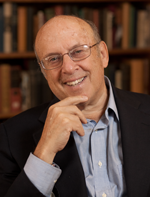
Jeffrey Carduner, Aesthetic Realism consultant, writes:
“The Knowledge America Needs” is a must read. It explains truly, in terms of people’s ways of mind, what America has been in the midst of in the last months and years—including the state of mind behind the horrible attempted insurrection at the Capitol. It explains why people can be attracted to lies and conspiracy theories. It describes what Aesthetic Realism shows to be the big battle within every person. And it points the way to an authentically just America. You will celebrate the passionate love of truth in “The Knowledge America Needs,” the newest issue of The Right of Aesthetic Realism to Be Known.
The commentary by Ellen Reiss begins:
Dear Unknown Friends:
It is urgent at this time—at any time, but immensely urgent now—that America study the following explanation by Eli Siegel:
The greatest fight…in every mind…is the fight between respect for reality and contempt for reality. [TRO 151]
Americans were horrified recently to see, as we watched our televisions, an armed onslaught by a mob against the US Capitol Building. The violent effort at a coup d’état included ransacking, defiling; the stealing of documents; the hunting after legislators, while making overt threats against their lives; the planting of pipe bombs; attacks—with flagpoles, fire extinguishers, and other weapons—on the bodies and lives of law enforcement officers.
My purpose here is not to comment on actions to be taken by Congress and law enforcement. It is to comment on what Americans and all people need most to understand—including about oneself, so that justice can be loved and successful— not only on the streets and in the buildings of a nation but in the minds of her people.
Ethics & the Self
This periodical is in the midst of serializing a great 1974 lecture by Eli Siegel, Where Ethics Is. Ethics is about that biggest fight in everyone—between contempt and respect. Ethics itself is respect: Mr. Siegel defined ethics as “the study of what the outside world deserves from you.” Contempt, meanwhile, is the “disposition in every person to think we will be for ourselves by making less of the outside world.” We need to see how ordinary contempt is—and how hideous and dangerous. Contempt can be the quiet dismissive feeling, in the midst of a discussion, “I don’t have to listen to what that guy is saying—he’s not important anyway.” It can be a smug inward belittling sneer as one looks at a person and thinks, “I’d never wear a shirt like that—what a jerk!” It can be the feeling, “My family matters; those other families don’t.”
Yet contempt is also the cause of racism, in all its viciousness—because contempt is the feeling, If I can look down on what’s different from me—despise it, him, her—well, I’m Somebody. Contempt—human, ordinary contempt—is the source of every injustice, including the most massive. As a means to understand recent happenings in America, I quote the following sentences by Eli Siegel from issue 165 of this journal:
The greatest ugliness in self is the seeing of contempt as personal achievement….It was contempt which made for that awful mode of retaliation called Nazism….Hitler is perhaps the greatest evoker of human contempt in history.
The United States is certainly, and blessedly, not Nazi Germany. However, there’s no question that contempt was evoked day after day for the last four years. Persons heard—and read—from high places, an untrammeled belligerent sneering, and it was attractive to many. It enabled them to feel they didn’t have to put any checks on their despising; they could let go with contempt in an utter way.
This Was Encouraged
The contempt that was evoked and encouraged these years is: America should belong to only certain people, and we should look down on and hate others—and want to crush anyone who doesn’t see it that way.
Meanwhile, contempt always makes one dislike oneself. People can welcome contempt because they’re unsure and displeased with themselves, and for a while the having of contempt gives one a false confidence. But the upshot, while cruel to others, is also a weakening of oneself, a racking uncertainty, an increasing unsureness which one tries to cover up. That is because the deepest desire in the human self is not to have contempt for the world but to value it truly: our deepest desire is to like ourselves by being just to the world different from ourselves. —All this has to do with the tumult in America now….Read more